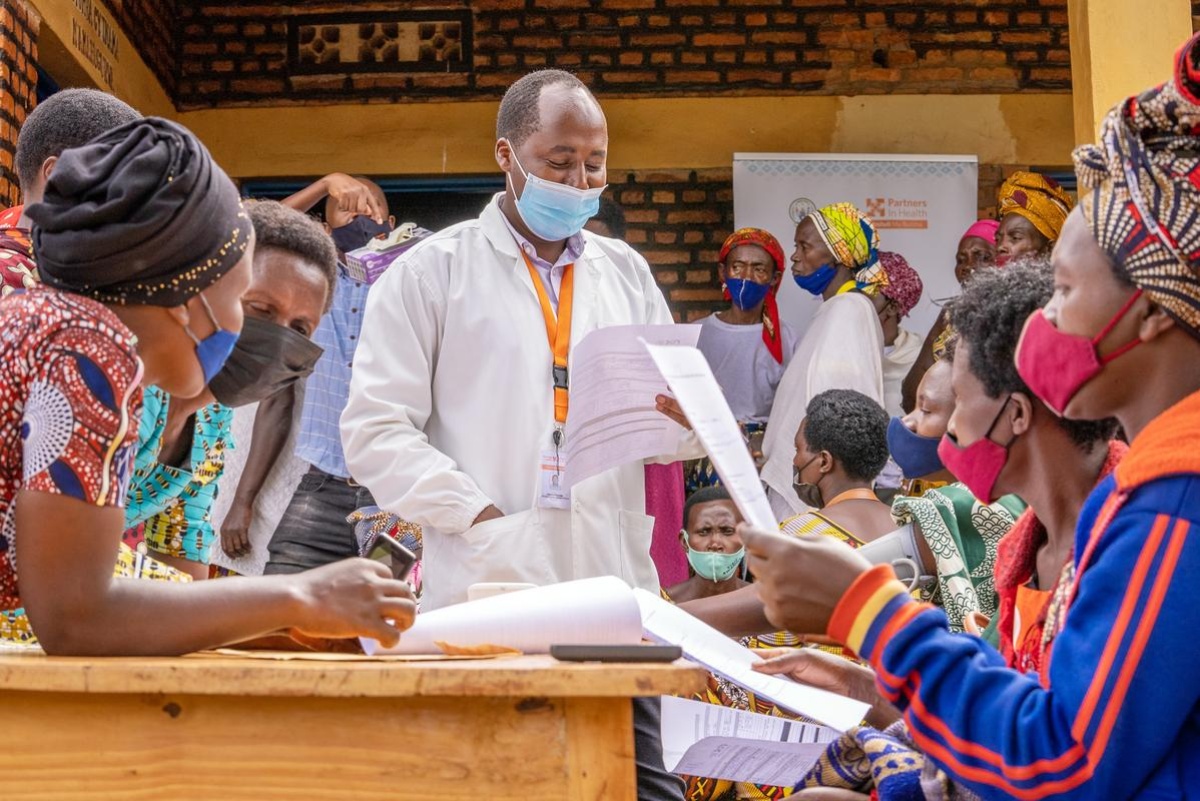3 Ways PIH Hires Locally and Why It Matters
Local staff provide culturally relevant care, gain economic empowerment
Posted on Feb 6, 2023

At Partners In Health, 88% of doctors, nurses, and other clinicians are from the countries where we work. In Haiti, our staff is 99% local.
Local staff are essential to what we do and the care we deliver at PIH: They speak patients’ language. They understand patients’ cultures. Often, they grew up in patients’ communities themselves, making them familiar faces and more readily trusted.
A deep understanding of language and culture is crucial to delivering health care that is respectful and effective. For example, handing out flyers with health information is ineffective if not written in a language patients can understand or if they are illiterate. Even opening a hospital or clinic is insufficient in communities where distrust of health care runs deep, due to histories of violence and discrimination at medical facilities.
Hiring locally is also important from an economic perspective, providing job opportunities in communities that have little to no formal economy. Income generation helps lift families out of poverty, enabling them to buy food and other necessities, pay for school fees, and improve their quality of life.
From Haiti to Peru to Rwanda, local staff are the lifeblood of PIH and enable us to provide care that is culturally relevant and effective.
Here are three ways we hire locally:
1. Clinical staff
In the 11 countries where we work, the vast majority of our doctors, nurses, psychiatrists, and other clinical staff are hired locally, enabling them to deliver care in patients’ languages and with deep cultural understanding. Our clinical teams partner directly with ministries of health, supporting governments as they work toward universal health care coverage. Our teams also meet regularly with local leaders and community organizations to understand communities’ needs.
Drawing on their shared cultural identities and our ethos of accompaniment, our clinicians build trust with patients and communities, leading to culturally relevant models for care delivery. In Mexico, Haiti, Liberia, and Sierra Leone, our clinical staff includes traditional midwives, whose healing and birthing practices have shaped maternal care there for centuries. In Chiapas, Mexico, our traditional midwives assist with facility-based births and help patients feel more comfortable giving birth in Sierra Madre communities scarred by histories of patient abuse and forced sterilization at hospitals.
2. Community health workers
At PIH, we don’t just care for patients in clinics and hospitals—we knock on their doors. This outreach is carried out by our 10,000 community health workers. Known in Mexico as acompañantes, in Peru as agentes comunitarios, and in Haiti as accompagnateurs, these workers are hired directly from the communities where we work and trained to provide basic health services, such as delivering medication, accompanying patients to appointments, or visiting patients at home to check on their mental and emotional health.
Community health workers have been central to our work since it began in Haiti in the 1980s. They are trusted neighbors, enabling them to build relationships with patients in ways no other staff can. And they bring deep cultural and community expertise to their work, delivering care in ways that patients can most easily receive it.
3. Support staff
Health workers aren’t the only local staff who make our work possible. Drivers, cooks, janitors, and other support staff enable lifesaving care and resources to reach our patients, wherever they are—and these staff members, like community health workers, are 100% local.
PIH has always provided more than medical care. In all communities where we work, we offer food, housing, transportation, and other essentials, which we call social support, tackling the systemic barriers to health care. Our support staff make this work possible. From cooks serving culturally appropriate food in our hospital cafeterias to drivers accompanying patients during doctor’s visits in communities far from home, support staff work tirelessly to create an environment where patients feel safe, welcomed, and respected.
Decades of Social Support
Every year, PIH connects thousands of people with essential resources such as food, housing, and transportation to help them access health care.

